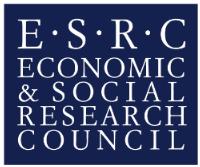 So-called 'smart cities' have the potential to make a significant contribution to urban sustainability, by using information and communication technology (ICT) to gather urban data and improve performance and management. Examples include smart solutions for parking, highway speed controls, refuse collection, water infrastructure and energy grids. However, these approaches are limited by their focus on optimising existing urban systems.
So-called 'smart cities' have the potential to make a significant contribution to urban sustainability, by using information and communication technology (ICT) to gather urban data and improve performance and management. Examples include smart solutions for parking, highway speed controls, refuse collection, water infrastructure and energy grids. However, these approaches are limited by their focus on optimising existing urban systems.
The New Urban Agenda (UN 2017) highlights the role of smart cities in driving a radical shift in city management, but it remains unclear how technological development can be aimed at improving sustainability. Technological transformation is currently driven by a market-led approach – focusing on creating business-friendly environments and citizen-centric service delivery – while urban data's potential for increasing sustainability remains untapped.
The complexity sciences (examining systems, their components and interactions) can be applied to formulate strategic policies that target urban sustainability through the use of new ICTs.
Key findings from the ESRC Strategic Network Data and Cities as Complex Adaptive Systems (DACAS)
- 'Smart technology'-based methods for gathering, connecting and utilising urban data can potentially support sustainability, but the majority of 'smart city' initiatives are aimed at finding cost efficiencies within existing systems; they are not developed with the Sustainable Development Goals in mind.
- Smart cities are commonly understood as incorporating the development of new digital markets, efficient urban management systems, and more informed citizens. However, this is too simplistic – ICT development must be understood as an 'emergent system' that's markedly different and more wide-reaching than its individual components.
- Badly planned implementation of smart city initiatives can cause societal harm – including the technological exclusion of people without ICT access, misuse of sensitive data, violation of citizens' privacy rights, and business interests being prioritised above social and environmental issues.
- Large technology companies typically provide data collection and access hubs for smart cities, which increases the risk of private companies controlling the data of governments and citizens.
- There are clear limitations to how much efficiency can be gained working in any existing system; optimising the system alone cannot deliver greater improvements and longer-term sustainability.
- Rather than being limited to the role of passive clients for technology companies, cities should be partners and enablers in ICT development, regulation, support and implementation.
Policy recommendations
- Developing an ethical framework for the collection and use of urban data will prevent data misuse and build public trust.
- Relying solely on new digital technologies creates vulnerability and risks excluding people with limited ICT access. Non-digital services should be retained in parallel with the rollout of new technologies.
- The development of city data platforms should follow international standards (such as ISO and ITU-T telecommunication standards) to ensure systems can operate across country borders and different system providers.
- Establishing new government departments with expertise in urban ICTs can break down existing silos and enable agile governance, using new models of multi-level governance that take into account that governance and technology mutually evolve and affect each other.
- Policymakers should prioritise access to real-time and long-term urban data on energy use, air quality, transport and emissions, to support development of new services.
- Digital developers could be offered support to focus on urban sustainability as a priority area for experimentation. This could include financial incentives, opportunities for knowledge exchange and placements, or support for other collaborative schemes across academia, business and governance.
- The technology could be used to involve the public more actively in governance, with user-friendly digital interfaces providing real-time urban data in areas such as affordable housing, basic services, disaster emergency response, and sustainable transport. In the long term, citizen participation should be encouraged in areas such as city planning, cultural preservation and the creation of public spaces.
Please read the source article here and find further information about the ESRC Strategic Network Data and Cities as Complex Adaptive Systems (DACAS) here.


